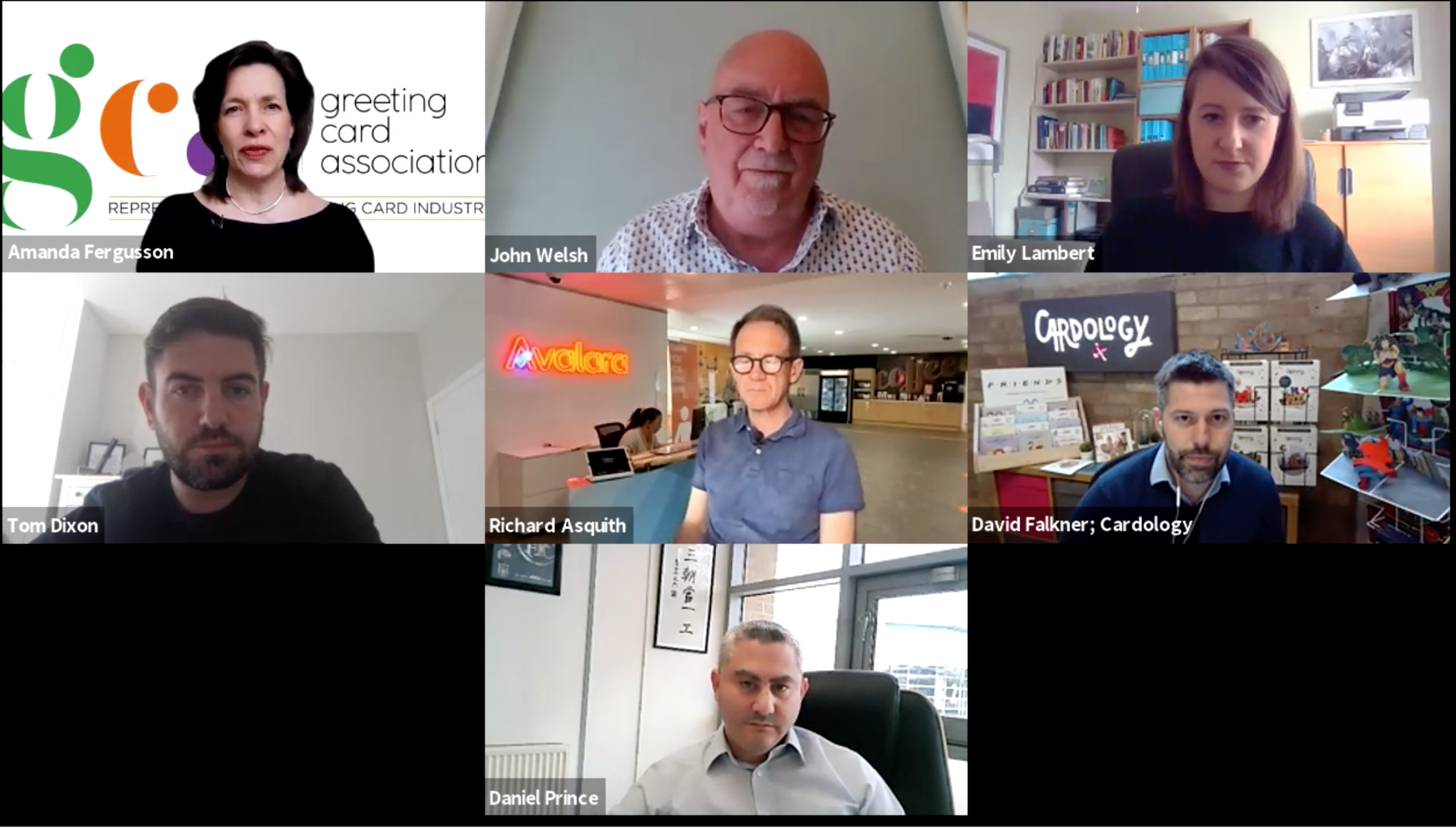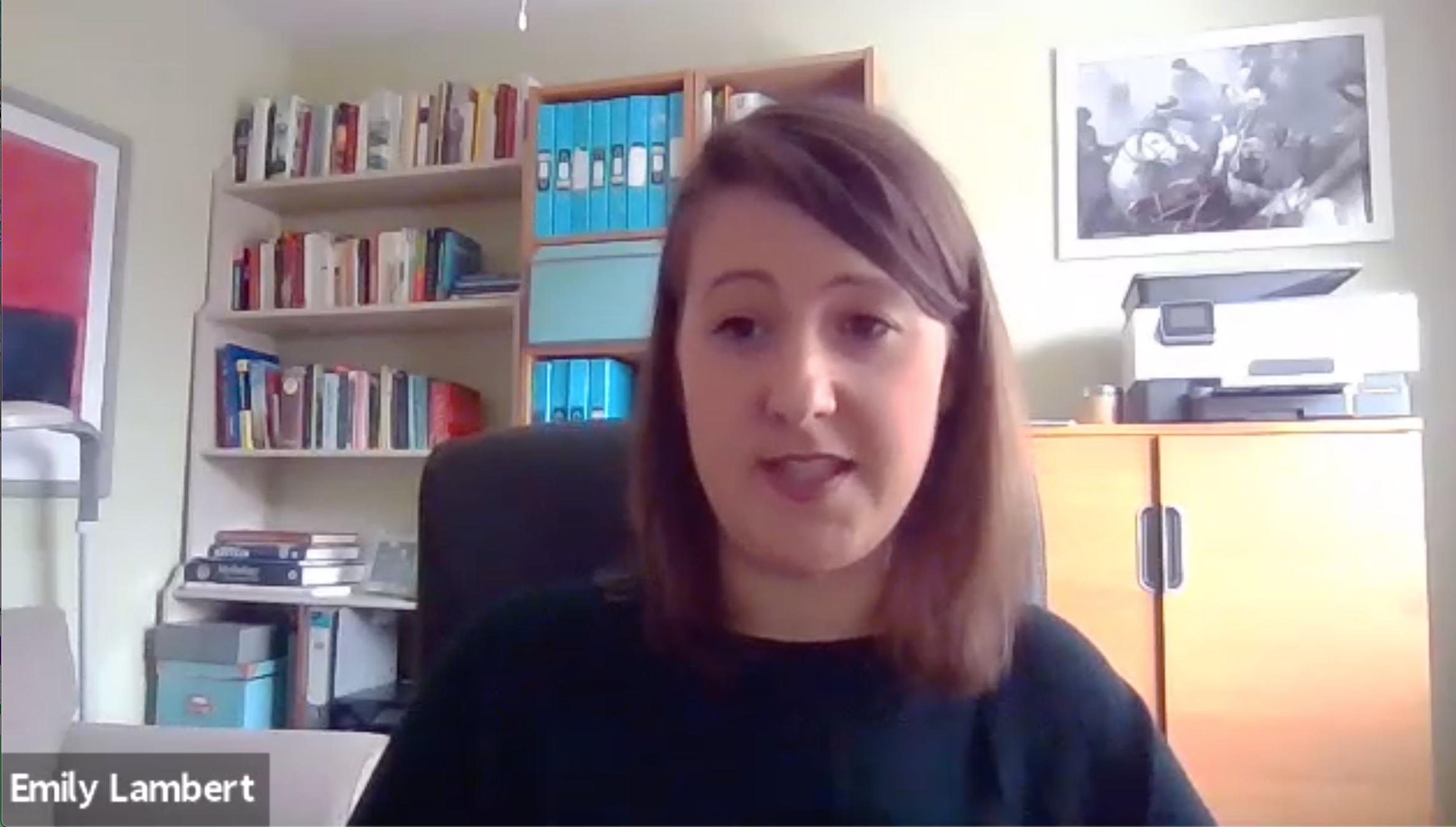Forewarned is forearmed is sage advice, most definitely on VAT changes that are due to come into effect on 1 July this year that will affect many card publishers and retailers who are selling cards direct to the consumer in EU countries.
This was just one of the many aspects which was covered in an information-packed GCA panel discussion on international trade in this post-Brexit period. This second panel discussion, chaired by GCA ceo Amanda Fergusson brought together leading VAT expert Richard Asquith (of Avalara); Emily Lambert and Tom Dixon from the Department of International Trade; John Welsh (industry logistics company 2WL); Daniel Prince (of Danilo) and David Falkner (of Cardology).

Sharing their vast collective knowledge and experiences, topics covered included suppling small orders to the EU, the varying rates of VAT in different EU countries; the benefits of registering for IOSS (Import One Stop Shop); country of origin; how intermediaries is the new cuddlier term for ‘fiscal reps’; clarity on when you should include your company UK address on the backs of cards and the DIT help that is available for those looking to grow their export side.

Dominating the agenda however was the imminent changes to VAT requirements for EU exports.
“The Brexit changes are challenging for all, but one big change which will have dramatic impact on those selling their cards to EU countries direct to consumer are the new requirements for small value shipments,” highlights Amanda Fergusson. Up until the beginning of July any publisher or retailer can ship cards to the value of 22 Euros to any EU country free of VAT. However, a little known change is that from July 1, any shipment up to the value of £150 will have to charge VAT at the rate of the EU country where the cards are destined. This means for Germany that would be 19% while Hungary, for example would be 27%.

“If you are a seller from your own website, you are responsible for collecting the VAT,” stresses Richard Asquith, who with 30 years with VAT as his specialist subject was a font of information and advice.
He also highlighted how Import One Stop Shop (IOSS), is a great help to publishers and retailers looking to export, explaining what this means, how and where to register for IOSS, and the benefits of IOSS to businesses.
Shortly after the Panel Discussion the Financial Times contacted Richard to ask for input on which business sectors would likely to be affected by the VAT changes on July 1 and he immediately put the journalist in touch with Amanda Fergusson.

“It is great that the FT is taking an interest in our sector which is oft forgotten as one of the UK’s great British success stories,” Amanda told PG Buzz. “We will endeavour to do all we can to keep members up to date on changes that will affect their business and also make the most of the wide circle of experts who are keen to share their knowledge.”
A recording of the panel discussion is hosted on the GCA website along with a wealth of information and relevant links on the association’s constantly updated main Brexit update blog (https://www.gca.cards/2nd-greeting-card-industry-seminar-on-trade-with-eu-post-brexit/). Also see the GCA Starting Up in Export post for more details on exporting.
Top: The Department of International Trade is fully engaged in helping GCA members through any post Brexit confusion.




















